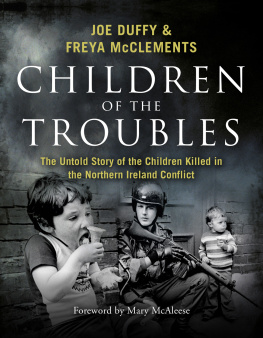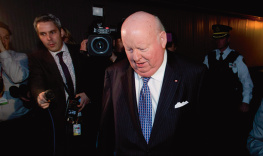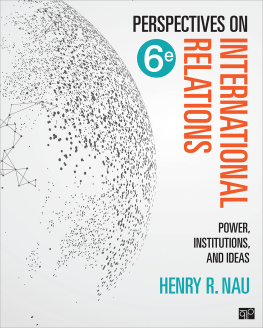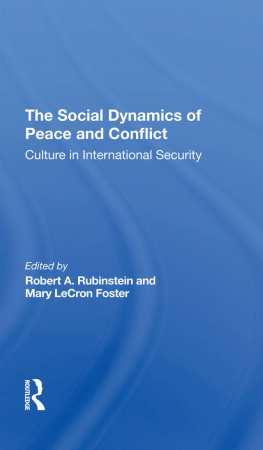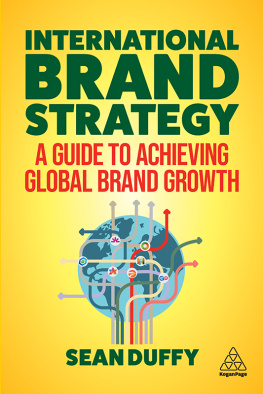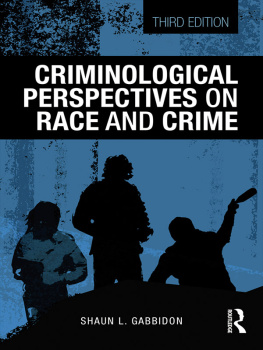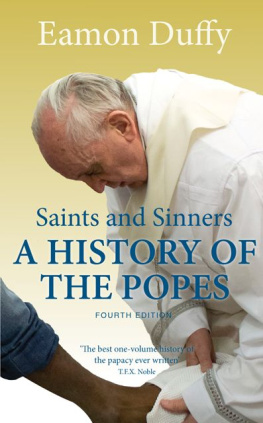
International Perspectives on Social Work and Political Conflict
International Perspectives on Social Work and Political Conflict provides an important basis for readers to recognise and understand the unique and specialist role that social workers have played and continue to play in international contexts of political conflict. Social workers make an important contribution in these difficult and sometimes dangerous situations across all continents. This book highlights the importance of social work in these very challenging contexts.
The first part of this book includes four chapters that summarise the existing knowledge base. The second part focuses on a case study of Northern Ireland where, for the first time, a detailed examination of the social work role was completed which involved researching the views of social work practitioners, managers and educators. Part three then draws together international experts in the field who have written chapters on those regions where social workers have been dealing with long-standing periods of political conflict.
At a time when violent conflagrations are currently a feature of many countries and regions across the continents of the world, this book offers a critical view of the social work role in these contexts and should thus be considered essential reading for all social work academics, students and professionals working in conflict-affected societies.
Joe Duffy is a Senior Lecturer in Social Work at Queens University, Belfast, where his research specialises on the involvement of service users to help social work students understand difficult pedagogy such as the impact of political conflict and trauma. His work in this field was recognised by a United Kingdom Higher Education Academy National Teaching Fellowship Award in 2014 and more recently by a 201819 US-UK Fulbright all Disciplines Scholar Award, the first for the discipline of social work since 1967
Jim Campbell was appointed to the Chair of Social Work at UCD in January 2015. Before then he had been Professor of Social Work and Head of the Department of Social, Therapeutic and Community Studies, Goldsmiths, University of London, and spent about 20 years teaching and researching social work at Queens University Belfast..
Carol Tosone is Professor and Director of the DSW Program in Clinical Social Work at NYU Silver School of Social Work. She is recipient of the NYU Distinguished Teaching Award, Distinguished Scholar in Social Work in the National Academies of Practice in Washington, DC., and Editor-in-Chief of the Clinical Social Work Journal.
Routledge Advances in Social Work
Critical Realism for Welfare Professions
Edited by Monica Kjrstad and May-Britt Solem
Everyday Social Justice and Citizenship
Perspectives for the 21st Century
Edited by Ann-Marie Mealey, Pam Jarvis, Janis Fook and Jonathan Doherty
Critical Ethics of Care in Social Work
Transforming the Politics and Practices of Caring
Edited by Bob Pease, Anthea Vreugdenhil and Sonya Stanford
Reconceptualising Transitions from Care to Independence
Supporting Care Leavers to Fulfil Their Potential
Jennifer Driscoll
Reciprocal Relationships and Wellbeing
Implications for Social Work and Social Policy
Edited by Maritta Trrnen, Carol Munn-Giddings and Laura Tarkiainen
Neoliberalism, Nordic Welfare States and Social Work
Current and Future Challenges
Edited by Masoud Kamali and Jessica H. Jnsson
Consciousness-Raising
Critical Pedagogy and Practice for Social Change
Nilan Yu
Participatory Pedagogic Impact Research
Co-production with Community Partners in Action
Mike Seal
Intersectionality in Social Work
Activism and Practice in Context
Edited by Suryia Nayak and Rachel Robbins
International Perspectives on Social Work and Political Conflict
Edited by Joe Duffy, Jim Campbell and Carol Tosone
https://www.routledge.com/Routledge-Advances-in-Social-Work/book-series/ RASW.
First published 2020
by Routledge
2 Park Square, Milton Park, Abingdon, Oxon OX14 4RN
and by Routledge
52 Vanderbilt Avenue, New York, NY 10017
Routledge is an imprint of the Taylor & Francis Group, an informa business
2020 selection and editorial matter, Joe Duffy, Jim Campbell and Carol Tosone; individual chapters, the contributors
The right of Joe Duffy, Jim Campbell and Carol Tosone to be identified as the authors of the editorial material, and of the authors for their individual chapters, has been asserted in accordance with sections 77 and 78 of the Copyright, Designs and Patents Act 1988.
All rights reserved. No part of this book may be reprinted or reproduced or utilised in any form or by any electronic, mechanical, or other means, now known or hereafter invented, including photocopying and recording, or in any information storage or retrieval system, without permission in writing from the publishers.
Trademark notice: Product or corporate names may be trademarks or registered trademarks, and are used only for identification and explanation without intent to infringe.
British Library Cataloguing in Publication Data
A catalogue record for this book is available from the British Library
Library of Congress Cataloging-in-Publication Data
Names: Duffy, Joe, editor. | Campbell, Jim, 1956- editor. | Tosone, Carol, editor.
Title: International perspectives on social work and political conflict / [edited by] Joe Duffy, Jim Campbell and Carol Tosone.
Description: Abingdon, Oxon ; New York, NY : Routledge, 2019. | Series: Routledge advances in social work | Includes bibliographical references and index.
Identifiers: LCCN 2019019692| ISBN 9781138557307 (hardback : alk. paper) | ISBN 9781315150833 (ebook : alk. paper)
Subjects: LCSH: Social service. | WarsSocial aspects. | Social conflict.
Classification: LCC HV41 .I537 2019 | DDC 361.3dc23
LC record available at https://lccn.loc.gov/2019019692
ISBN: 978-1-138-55730-7 (hbk)
ISBN: 978-1-315-15083-3 (ebk)
The have been many paths that led to the publication of International Perspectives on Social Work and Political Conflict. As editors, each of us has had long standing interests on the topic either through existing networks, educational projects or research and publication activities. In these endeavours, we have always believed that the types of issues raised by the authors in this book are crucial to the way that we understand the relationships between professional practice, education and management and the many political conflicts that continue to exist in the world. It seems that with every year and decade, new conflicts arise or existing conflicts reignite with many negative impacts upon societies, clients and professionals. We hope that this collection of chapters will illuminate these complexities and add to our appreciation of what positive roles social workers can play in such circumstances.
There are many people that the editors wish to thank in support of the publication of the book. In particular we appreciate the professionalism and patience of two members of staff at Taylor Francis: Georgia Priestley, editing assistant and Gail Welsh who diligently carried out the proofing role.



